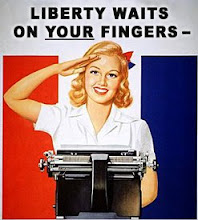
28 senior level editors at 14 small and 14 large newspapers were interviewed.
Among findings were that all but two of the large newspapers recalled having to discipline or fire reporters over ethical issues. Only half of small papers reported doing so.
In large papers, the most common problems involved plagarism or deceptive reporting/editing practices. While for smaller papers, the most common problem involved conflicts-of-interest.
The way paper editors described the communities' views of the newspaper also showed differences between the sizes. Large papers described being seen as respected as an institution (they were respected even if they weren't liked) or by their "editorial page ideology." Small town paper editors described the communities' views in terms of "community connections," away of connecting to other parts of the community.
Perhaps the part that struck me the most was when the editors were asked if there were inherent differences between large and small newspapers. Nine of the 14 large newspapers said "no," while 11 of the 14 small newspapers said "yes." I think those responses right there give us some insight.
So, are there inherent differences because of the size of a newspaper? If so, what are they?
One big difference seemed to be the pressure from smaller communities on journalists to not print something, do print something, or take specific angles. In a smaller community you are writing about someone you know, or someone that someone you know, knows. You face your critics at the store, at the theatre, at your kid's baseball game.
Thoughts?







1 comment:
It seems to me that the small-town papers don't need to be anything but hyper-local.
They figure that their readership is fairly secure, since small-town population is rather stagnant, and only one paper is really needed. Since the big city is always changing and evolving, more people means more competition and, thus, more papers.
Post a Comment